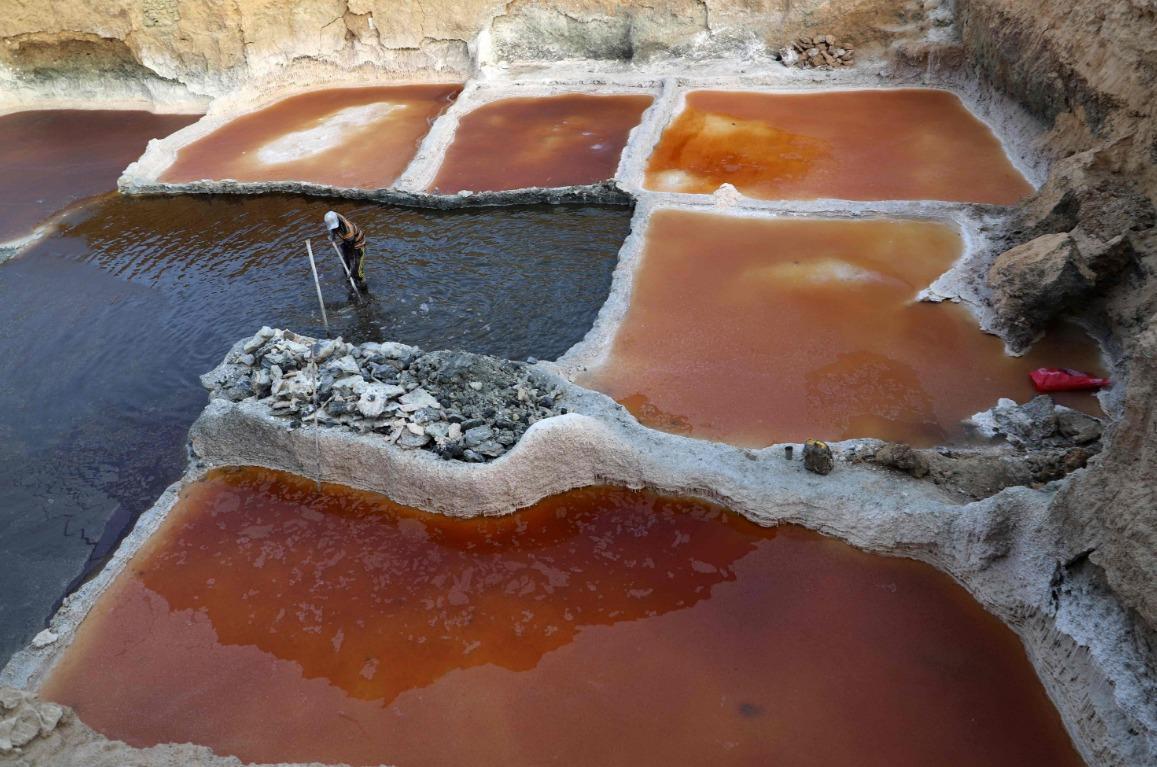
At the edge of an oasis almost engulfed by the dunes, where the rare caravan still passes, is a desert landscape punctured by holes.
The salt pans of Kalala, near Bilma in northeastern Niger, were once an essential stop for traders with their swaying lines of camels.
Salt digging, carried on from generation to generation, was a thriving business, involving a commodity so precious that it was bought and sold across the Sahara and beyond.
Today, in this isolated desert region plagued by armed gangs and smugglers, the diggers struggle to survive.
Over centuries, hundreds of pits have been dug by hand and then filled with water to leach salt from the local rock.
Standing in the black, and ochre pits, Ibrahim Tagaji and a colleague were wrestling with a crowbar to harvest the bounty, a method of extraction that essentially remains unchanged over time.
A blisteringly hot day, when the temperatures reached 45 degrees Celsius in the shade, was coming to a close.
Barefoot in brine swimming with crystals, the two men dug out salty chunks and pounded them into grains, which were then scooped out with a gourd.
They then poured the salt into molds made from date palms, forming slabs that were then ready for sale.
It is punishingly hard work, rewarded by an income that fluctuates according to whichever buyers happen to pass through town.
"When someone with money comes, you earn a lot," said Tagaji between shovelfuls. "Otherwise, it's a lot of work and the money's poor."
But the local economy offers few alternatives and roughly half of Bilma's population still works in the pits, according to local officials.
"As soon as you drop out of school, you have to work here," said Omar Kosso, a veteran of the industry.
"Every family has its own salt pan. You are with your wife, your children, you come and work."
The camel caravans still stop over in Bilma, where the vast majority of residents live in traditional houses with walls of salt and clay drawn from nearby quarries.
Unfortunately for Bilma, however, the world outside has changed.
"In the past, the caravans came, the Daza, the Hausa, the Tuareg," he said, reeling off some of ethnic groups in the region. "Now it's not like before."
The Tuareg traders, for instance, gradually gave up their nomadic way of life to settle, farming the fertile foothills of the nearby Air mountains in the north.
"You make more money like that than tiring yourself out spending 10 days travelling to get to Bilma, then 10 days back," Abari Chegou acknowledged.
It made more sense to buy a slab of salt for 2,000 CFA francs ($3.25) in Agadez, the regional capital 550 kilometers away, than to travel all the way to Bilma to bargain for it at a third of the price, he said.
The European Union did pay for several trucks, in an bid to open up the salt-producing municipalities.
But the fleet of vehicles succumbed to the heat, the rugged roads and squabbles between members of the local cooperative.